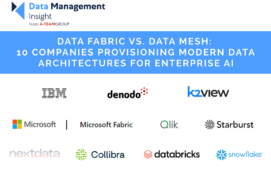The European Securities and Markets Authority (ESMA) call for market data experts to join its consultative working group (CWG) closes in less than two weeks time, with those selected to join the group expected to have considerable influence on regulatory market data issues during their two-year term.
While ESMA is unlikely to disclose information about its renewal of the CWG ahead of the 7th March closing data for applications, the group is likely to address outstanding issues including ESMA’s interpretation of the Markets in Financial Instruments Regulation (MiFIR) that suggests it will collect reference data from trading venues at the end of the day and publish it, free of charge, before the next trading day.
The CWG was set up two years ago and advises ESMA’s Market Data Standing Committee (MDSC) on technical standards, guidelines and recommendations, and their potential impact in the market. The MDSC contributes to ESMA’s work on issues around market data reporting of derivative contracts, positions, transactions in financial instruments, order data record keeping, clock synchronisation and financial instruments reference data. In terms of policy, it is responsible for advising the European Commission on technical standards, guidelines and recommendations relating to common standards, formats and identifiers for information that must be reported by market participants under European Market Infrastructure Regulation (EMIR), Markets in Financial Instruments Directive II (MiFID II), Market Abuse Regulation (MAR) and Securities Financing Transaction Regulation (SFTR) requirements.
The CWG is made up of 20 market data experts from the industry and in its first iteration included three members from vendor firms Fidessa, MarketAccess and Thomson Reuters. The MDSC includes a representative from national regulators in all EU countries with the exception of two small countries.
Once ESMA has reviewed and recast the CWG, it is expected to consider outstanding MiFID II and MiFIR issues, such as the regulatory requirement for one or many European consolidated tape systems to be set up, and the potential knock-on effect of ESMA publishing data from these systems to everyone, potentially free of charge, despite the fact that much of the data has associated costs such as licence fees.
The working group may also consider ESMA’s decision to use only ISINs as instrument identifiers for MiFID II. This issue has been the subject of significant market feedback to ESMA and is also at the heart of an ISO study group that has been set up to look at how ISINs can be applied to OTC derivatives on a worldwide basis. The study group will make recommendations to the ISO by the end of May.
Subscribe to our newsletter




